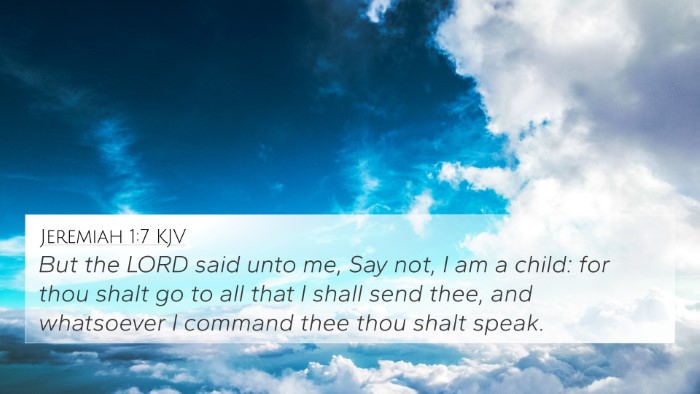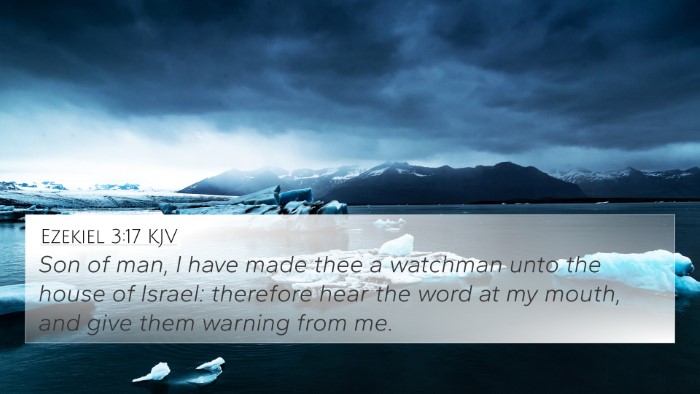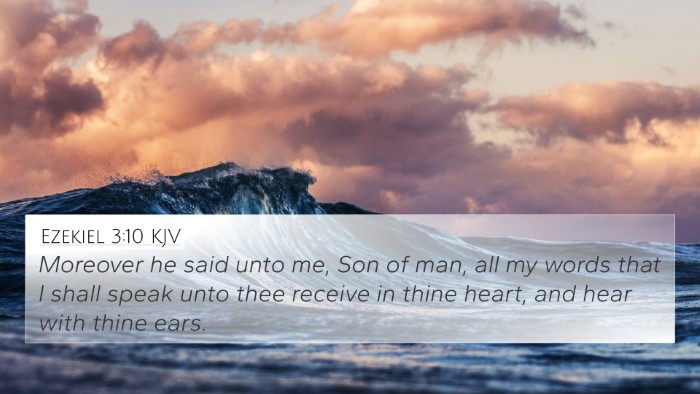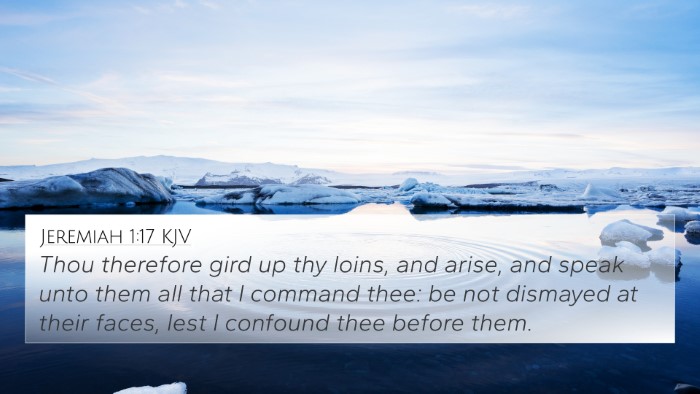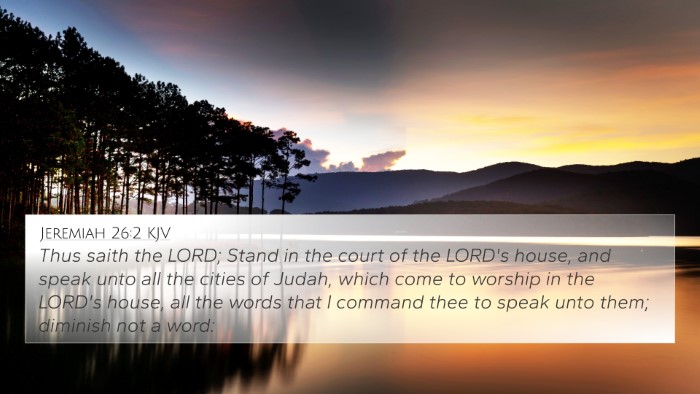Ezekiel 2:7 - Understanding the Verse
Bible Verse: "And thou shalt speak my words unto them, whether they will hear, or whether they will forbear: for they are most rebellious." (Ezekiel 2:7)
This verse presents a profound charge to the prophet Ezekiel, emphasizing both the responsibility and challenge inherent in his prophetic calling. The Divine directive compels Ezekiel to convey God's message regardless of the people's receptiveness. Below, we explore its implications through insights derived from various public domain commentaries.
Commentary Insights
-
Matthew Henry notes that the rebellious nature of the people does not absolve Ezekiel of his duty. He emphasizes the importance of persistence in delivering God's word, highlighting that the message may touch some hearts even if the majority reject it.
-
Albert Barnes explains that the term "rebellious" refers to the general state of obstinacy among the people. This condition calls for a profound commitment from Ezekiel, suggesting that even when the people choose not to listen, the truth still needs to be proclaimed.
-
Adam Clarke interprets the passage as a demonstration of God's ongoing engagement with His people despite their unfaithfulness. Clarke aligns this with the overarching theme of God's grace, as He continues to speak and reach out to His people, showing His unwavering commitment to their salvation.
Thematic Connections and Cross-References
Ezekiel 2:7 is a pivotal verse that connects deeply with multiple themes throughout the scriptures. The message of standing firm in the face of adversity resonates widely, making it essential to link and cross-reference with related verses:
- Isaiah 6:9-10 - Similar to Ezekiel, Isaiah is instructed to share the message with a people who will not understand. This parallel highlights the prophetic tradition of declaring God’s word amidst disbelief.
- Jeremiah 1:7-8 - Jeremiah also receives a command to speak God’s words regardless of the people's response. It stresses the necessity of obedience in a political or social landscape rife with rebellion.
- Matthew 10:14 - In the New Testament, Jesus instructs His disciples to shake off the dust from their feet when not received, mirroring the prophetic challenge given to Ezekiel.
- Acts 7:51 - Stephen references the “stiff-necked” nature of the people, reinforcing the idea that resistance to God’s voice has been a long-standing issue throughout biblical history.
- Revelation 3:20 - Here, the call to listen and respond to God’s voice underlines the continual offer of relationship despite persistent rebellion.
- Romans 10:16 - Paul discusses how many do not obey the gospel, reflecting Ezekiel's experience of speaking to a resistant audience.
- Hebrews 3:15 - This passage warns against hardening hearts, paralleling the warning to Ezekiel of the people’s rebellious disposition.
Inter-Biblical Dialogue and Interpretations
Ezekiel 2:7 invites a deeper reflection on the overall narrative of resistance to God across both Testaments. Here are some themes to consider:
- The consistency of God’s desire to communicate with His people, despite their unfaithfulness.
- The role of the prophet as a messenger who bears the weight of delivering uncomfortable truths to the nation.
- The broader theological implications of rebellion, showing a history of God's people resisting His guidance.
Concluding Thoughts
In essence, Ezekiel 2:7 serves as a crucial reminder of a prophet's duty amidst widespread disobedience. The cross-references and connections highlighted further establish this verse’s importance in understanding both the Old and New Testament themes of prophetic ministry and divine communication. By drawing connections between these scriptures, we see a fuller picture of God’s ongoing dialogue with humanity, each voice encouraging, warning, and calling to repentance in the face of rebellion.
SEO Content
This interpretation of Ezekiel 2:7 can be useful for those exploring Bible verse cross-references and seeking to understand the connections between Bible verses. Whether through a Bible concordance, a Bible cross-reference guide, or various scriptural cross-referencing techniques, diving into this verse can enrich one’s understanding of Biblical themes and prophetic responsibilities. Utilizing these tools for Bible cross-referencing can unveil the intricate thematic Bible verse connections that exist within scripture, emphasizing the continuity of God's message across time.




